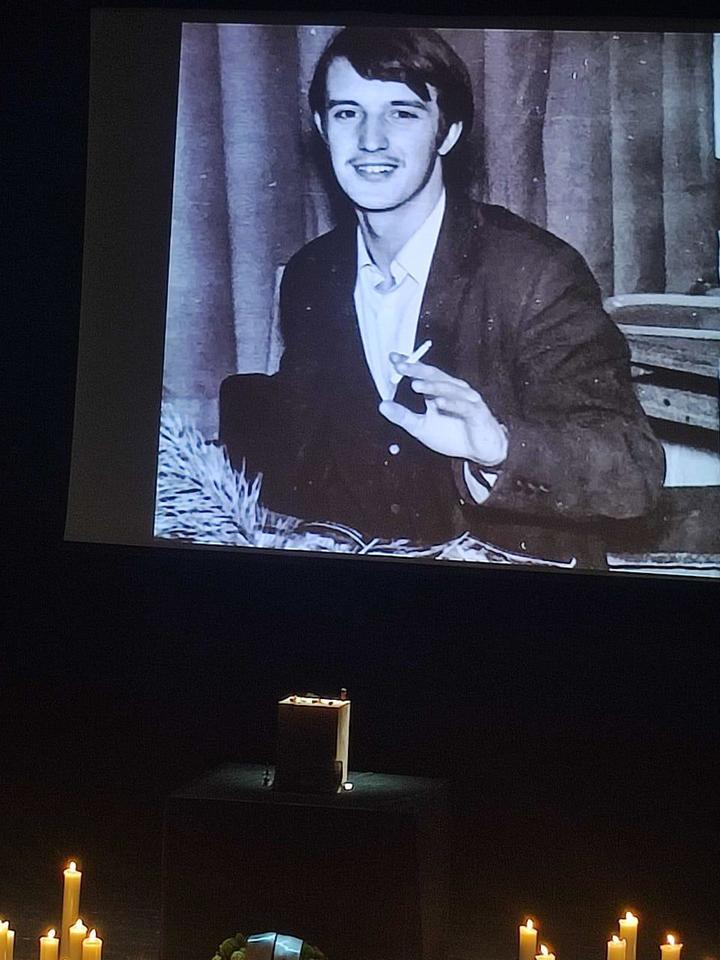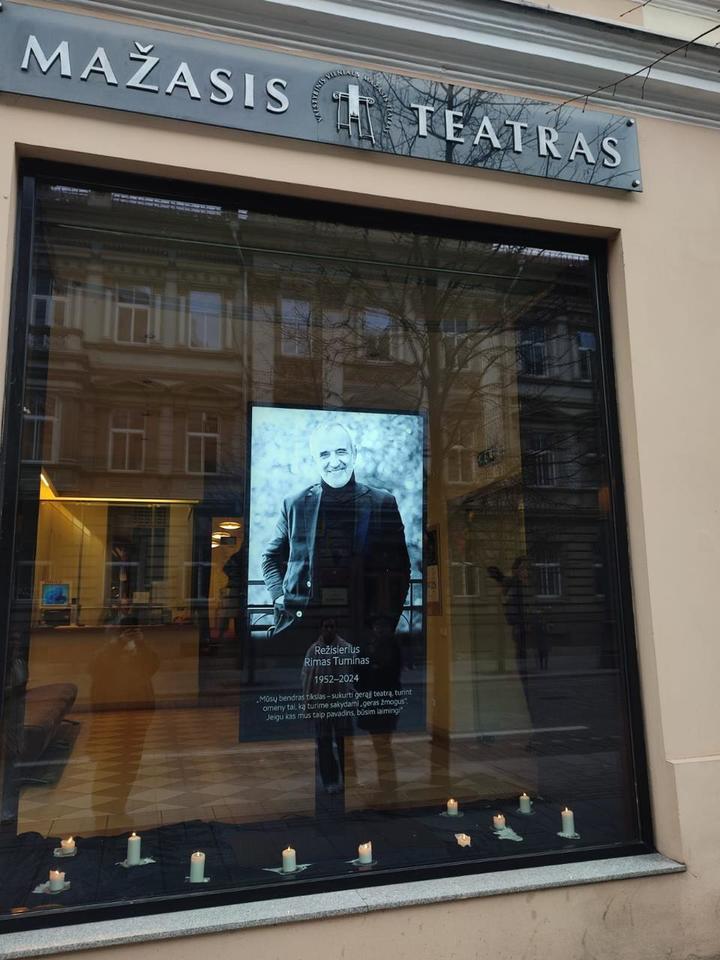Wreaths with Russian text appeared on the grave of Rimas Tuminas in Vilnius
[ad_1]
The director was buried on artists’ hill
Second day Lithuania says goodbye to its outstanding director Rimas Tuminas. They began saying goodbye on the 19th from noon until nine in the evening, and on March 20 everything ended at 14.00, after which the funeral procession went to the Antakalnis cemetery, where the ashes of the Master were buried, whose fate in recent years in his homeland was very, very dramatic.
The building of his Maly Theater in Vilnius, which he founded, has black fabric covering its façade. In the glass case there is a portrait of Rimas – he is smiling, and this charming smile does not allow one to believe that he is no longer here in Vilnius, or in the world theater space. The small hall with about 300 seats is full, but, as our correspondent reports, at first there was no rush, but about thirty minutes before the end of the crowd, the number of people increased significantly – and for lack of empty seats, they began to sit on the steps in the aisle.
The stage is decorated strictly – all in black, ashes that arrived from Italy are on a black cabinet. And at the same time, as an eyewitness notes, there is a feeling of purity in the black space. In contrast to the black, there are white candles, white roses, and a lot of them. Almost the entire stage is already covered with them. On stage everything was as he loved, as it was in his productions – laconic and strict, white and black. And music…
And the night before, in the 18th-century Catholic Cathedral of St. Francis and Bernardine, a mass for Rimas Tuminas took place; it was held in Lithuanian.

His daughter said in an interview that “dad went to plant a new Cherry Orchard.” The image is beautiful and accurate for him. If only it weren’t so painful for what the Lithuanian authorities did. In fact, the artist was an outcast in his own country long before the start of the SVO in Ukraine. They did not forgive him for working in Russia, he headed one of the main Russian theaters – the Vakhtangov Theater – and staged performances there that were applauded in European countries, the USA, China, and Israel. Well, after the start of the SVO, they even anathematized Tuminas, making him almost the first to deprive him of citizenship. And now they are seeing them off on their last journey, mourning. Indeed, there is no prophet in his own country.
After the priest read the prayer from the stage, beautiful music began to sound, and the photograph of Rimas Tuminas on the screen seemed to melt and gradually disappear. The curtain slowly fell to applause. A huge crowd, about a thousand people, was waiting for the procession on the street – the avenue was blocked. The bell rang. The National Drama Theater had another farewell, a short one, to Khachaturian’s waltz from the play “Masquerade”. And only after that the ashes of Rimas Tuminas were taken to the Antakalnis cemetery, which is considered prestigious.

The 25th district, located on the hills under pine trees, is called Menininkai Kalnelis, known as the Artists’ Hill. Antakalnis cemetery Menininkai Kalnelis is an exceptional burial place where many famous writers, artists, actors, musicians found their final resting place – sculptor Juoz Mikenas, writer Augustinas Gritsius, opera singer Elena Chudakova, artist Stasis Krasauskas, writer Ieva Simonaitytė, poet Paulius Širvis, composer Eduardas Balsis. In recent years, many artists of this generation have been buried on Artists’ Hill: poet Justinas Marcinkevičius, composer Gintautas Abarius, film director Arūnas Žebryūnas, actors Vytautas Sapranauskas, Antanas Šurna. The hill also houses the burial mound of Gintaras Rouplenas, the creator of the comedy show “Bicycle Show,” who died in Jordan. Actor Donatas Banionis is also buried there next to his previously deceased wife Ona. Now with them is the brightest, cheerful, wise theatrical talent – Rimas Tuminas.
Among the bouquets and wreaths, there were several with Russian text on ribbons: a wreath with white roses from the Vakhtangov Theater and a touching bouquet with the inscription “Thank you, Master.” Probably from some Russian artist.
[ad_2]
Source link






